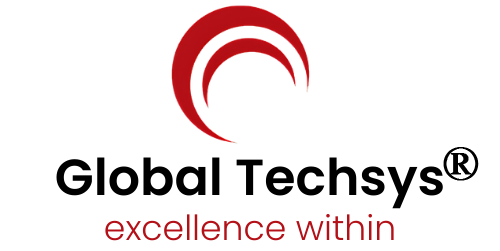The demand for certain SAP modules grows as industries evolve and adapt to new technologies and market conditions. Students looking into SAP courses might find it beneficial to focus on modules currently in high demand and will continue to be relevant.
Here’s a rundown of the top 11 SAP modules you should consider.
1. SAP Finance and Controlling (FICO)
SAP Finance and Controlling (FICO) is one of the core modules in SAP, and it is crucial for integrating financial management and cost-controlling processes. It provides comprehensive financial transaction data, enabling businesses to manage their financial conditions effectively. The finance component allows for better decision-making through accurate financial reporting, while the controlling component supports planning and monitoring costs to enhance profitability. This dual functionality makes SAP FICO vital for banking, finance, and any corporation that manages large financial transactions and needs precise financial control. It’s highly valued for its ability to streamline financial operations, maintain compliance, and provide deep insights into financial performance.
2. SAP Sales and Distribution (SD)
SAP Sales and Distribution (SD) is a key module in SAP’s ERP system, primarily designed to facilitate the processes of order-to-cash cycles, including sales orders, pricing, billing, and shipping. It enables companies to handle the complexities of distribution channels, customer relationships, and sales engagements effectively. This module is tightly integrated with other SAP modules like SAP Material Management (MM) and SAP Production Planning (PP), ensuring a seamless flow of information across different business functions. By managing sales orders, pricing, billing, and shipping efficiently, SAP SD helps improve customer satisfaction and optimise operational processes. It makes it indispensable for businesses focused on maximising their sales performance and revenue generation.
3. SAP Material Management (MM)
SAP Material Management (MM) is a fundamental module in the SAP ERP system that focuses on managing the entire material lifecycle, from procurement to storage, inventory, and disbursement. It streamlines all material management and procurement processes, facilitating efficient purchasing, goods receiving, inventory management, and invoice verification. This module is essential for organisations looking to optimise their supply chain and reduce costs associated with material handling. SAP MM integrates closely with other modules like SAP Production Planning (PP) and SAP Sales and Distribution (SD) to ensure a smooth flow of materials and information across various departments, enhancing operational efficiency and supporting effective procurement and inventory management decision-making.
4. SAP Production Planning (PP)
SAP Production Planning (PP) is an integral module within the SAP ERP system, specifically designed to support the planning and management of manufacturing processes. This module helps businesses streamline production by managing and maintaining manufacturing data, including bill of materials, routings, work centres, and capacity planning. It assists in all manufacturing phases, from planning through execution, enabling organisations to optimise production schedules, equipment utilisation, and material requirements.
The SAP PP module is closely integrated with other SAP modules, such as Material Management (MM) and Sales and Distribution (SD), ensuring a cohesive flow of data that enhances the overall efficiency of production operations. By enabling more accurate forecasting and scheduling, SAP PP helps reduce production costs and improve product delivery times, making it vital for manufacturing sectors aiming to maintain competitive advantage through efficient production techniques.
5. SAP Human Capital Management (HCM)
SAP Human Capital Management (HCM) is a comprehensive SAP module that facilitates all core HR processes, from recruitment to retirement. It helps organisations manage their most valuable assets—their employees—more effectively. This module encompasses various sub-modules like Personnel Management, Organizational Management, Payroll, Time Management, and Talent Management, providing tools for employee administration, payroll, performance evaluation, and learning management systems.
SAP HCM also includes e-recruiting and succession planning capabilities, enabling businesses to attract, retain, and develop top talent. The integration with other SAP modules ensures seamless data flow across the enterprise, enhancing decision-making and operational efficiency. By automating and optimising HR processes, SAP HCM is critical in aligning workforce strategies with business objectives, thus supporting overall organisational growth and employee satisfaction.
6. SAP Supply Chain Management (SCM)
SAP Supply Chain Management (SCM) is a robust module designed to efficiently and synchronise the flow of products, information, and finances related to a company’s supply chain process. This module encompasses several key functions, including planning, design, coordination, execution, and monitoring of supply chain activities. The aim is to enhance business agility and responsiveness, increase operational efficiency, and minimise costs across the supply chain.
SAP SCM integrates tightly with other SAP modules, such as SAP Production Planning (PP), SAP Material Management (MM), and SAP Sales and Distribution (SD), ensuring a cohesive and fluid transfer of information. By leveraging real-time insights and optimising inventory levels, procurement, and logistics, SAP SCM helps businesses maintain competitive advantages by keeping pace with demand changes and improving customer satisfaction through the timely delivery of goods and services.
7. SAP Business Intelligence (BI)
SAP Business Intelligence (BI) is a crucial module within the SAP ecosystem. It is designed to empower organizations by providing advanced data analysis, reporting, and data visualisation tools. SAP BI enables users to convert raw data into meaningful insights and actionable information, facilitating better decision-making across all levels of the organisation. The module includes functionalities for data warehousing, data integration, and data quality management, as well as tools for creating comprehensive reports and dashboards that illustrate complex datasets in an understandable format.
This module supports a wide range of analytical processes, from basic data aggregation to complex predictive analytics, helping businesses to understand trends, patterns, and performance metrics. SAP BI is vital in enhancing business processes by providing deep insights into operations, customer behaviours, and market conditions, enabling companies to align their operations and maximise efficiency strategically.
8. SAP Customer Relationship Management (CRM)
SAP Customer Relationship Management (CRM) is a vital module within the SAP suite, designed to help businesses manage and optimise their interactions with current and potential customers. This module supports various CRM processes such as sales, customer service, and marketing, providing tools that help enhance customer satisfaction, increase sales, and improve service effectiveness. SAP CRM enables organisations to deeply understand customer behaviour and preferences through its robust data analysis and management capabilities, facilitating more personalised and targeted marketing campaigns, sales strategies, and customer service initiatives.
Integrating SAP CRM with other SAP modules like SAP Sales and Distribution (SD) and SAP Marketing ensures a seamless flow of customer-related information across the business, enhancing the overall customer experience and enabling more informed decision-making. By leveraging SAP CRM’s comprehensive features, companies can effectively manage customer relationships across various channels and touchpoints, driving loyalty, reducing churn, and boosting profitability.
9. SAP Project Systems (PS)
SAP Project Systems (PS) is a powerful module for comprehensive project management. It facilitates detailed planning, tracking, and monitoring of all project aspects, integrating costs, timelines, resources, and materials. This module is particularly beneficial for industries involved in large-scale projects like construction, engineering, and R&D, where managing complex project schedules and budgets is critical.
SAP PS enables organisations to structure projects based on various parameters and track them through their entire lifecycle, from initiation to closure. It supports functionalities such as scheduling, budgeting, and resource management and provides tools for reporting and analytics to assess project performance against set goals. The module’s integration with other SAP modules like Material Management (MM), Financial Accounting (FI), and Controlling (CO) ensures that all project-related transactions are captured and processed seamlessly, providing a holistic view of the project’s financial and operational status. This integrated approach allows project managers to make informed decisions, optimise resource allocation, and effectively manage project risks, contributing to on-time and within-budget project delivery.
10. SAP Environmental, Health, and Safety (EHS)
SAP Environmental, Health, and Safety (EHS) is a specialized module dedicated to helping organisations efficiently manage their compliance with environmental, health, and safety regulations. It supports the development of safer work environments, adherence to regulatory requirements, and implementing sustainable business practices. The SAP EHS module is particularly crucial for chemical production, manufacturing, and energy industries, where compliance with environmental and safety standards is rigorously monitored.
This module comprises various sub-modules, such as Waste Management, Industrial Hygiene and Safety, Occupational Health, and Environmental Compliance. These tools help manage emissions, hazardous substances, and waste management data, ensuring that all activities are recorded and assessed for compliance risks. SAP EHS also enables businesses to track incidents and accidents, manage safety measures, and conduct risk assessments to prevent future occurrences. Integrating with other SAP modules like Human Resources and Production Planning ensures that EHS considerations are embedded into all business processes, helping companies comply with regulations and promote corporate responsibility and sustainability.
11. SAP Quality Management (QM)
SAP Quality Management (QM) is an essential module designed to support organisations in maintaining and enhancing the quality of their products and processes across the entire supply chain. It integrates closely with other SAP modules such as Material Management (MM), Production Planning (PP), and Sales and Distribution (SD), facilitating comprehensive quality control from procurement to sales.
The SAP QM module enables businesses to implement a structured quality management process, offering features for planning, inspecting, and controlling quality. Key functionalities include managing quality inspections, controlling production processes to prevent defects, and handling quality certificates for incoming and outgoing goods. It also supports quality notifications and audits, allowing for proactive management of quality issues.
Ensuring that all quality standards are met consistently, SAP QM helps organisations reduce waste, minimise rework, comply with regulatory standards, and enhance customer satisfaction. This proactive approach to quality management not only safeguards the brand reputation but also contributes to the overall efficiency and profitability of the business.
Why Choose Global Techsys Learning for SAP Courses?
Global Techsys Learning stands out as a prime choice for students aspiring to excel in SAP for several reasons:
- Industry-Relevant Curriculum: Courses are designed to keep pace with current and emerging market needs, ensuring you learn skills in demand.
- Experienced Instructors: Learn from professionals with real-world experience implementing SAP solutions across various industries.
- Flexible Learning Options: Whether you prefer online learning or in-class sessions, there’s a flexible option to suit your schedule.
- Career Guidance: Get support in learning and advancing your career through our extensive network of industry connections.
- Hands-On Training: Practical training sessions ensure you can apply what you learn in real-world scenarios, making you job-ready.
Choosing the right module and training institute can significantly impact your career in the tech industry. With SAP’s continuous evolution, keeping an eye on the latest modules and technologies is essential. At Global Techsys Learning, we provide the tools and training you need to succeed in this dynamic field.
FAQs
What are the types of SAP modules available?
SAP offers various modules, including SAP FICO, SD, MM, PP, HCM, SCM, and more, each catering to different business functions.
How many modules in SAP are commonly used?
SAP has over 25 core modules, but businesses typically implement modules that best suit their specific needs.
Which SAP module is in demand in 2025?
Modules like SAP FICO, SD, and SCM continue to be highly sought after due to their crucial role in financial management, sales, and supply chain operations.
Can I learn multiple SAP modules?
Yes, many professionals choose to specialise in multiple SAP modules to enhance their versatility and employability in the market.
Are there any new modules I should be aware of?
SAP continually updates its offerings, with recent additions focusing on cloud integration and advanced analytics. Stay updated with Global Techsys Learning for the latest developments.
Focusing on the right modules and training with a reputable institution like Global Techsys Learning can significantly enhance your career prospects in SAP.







